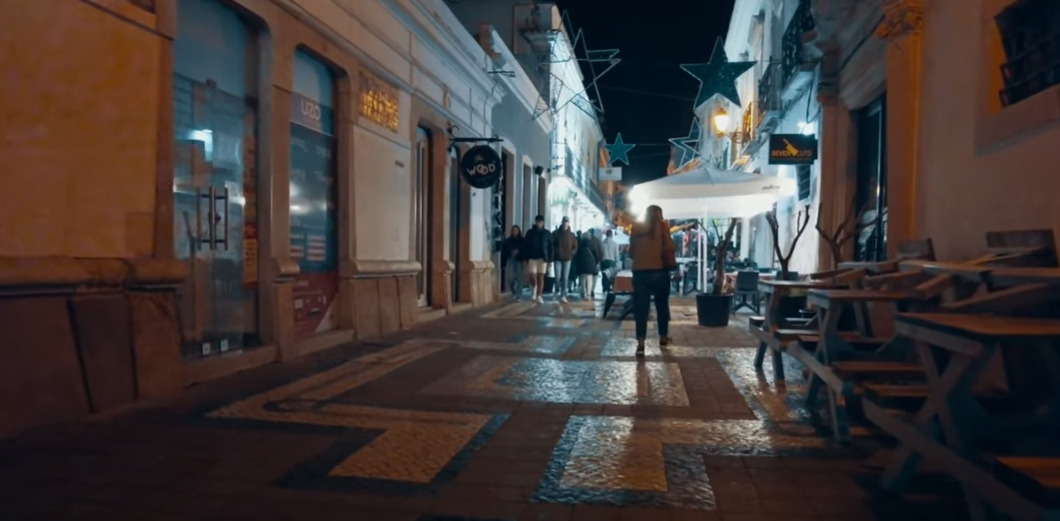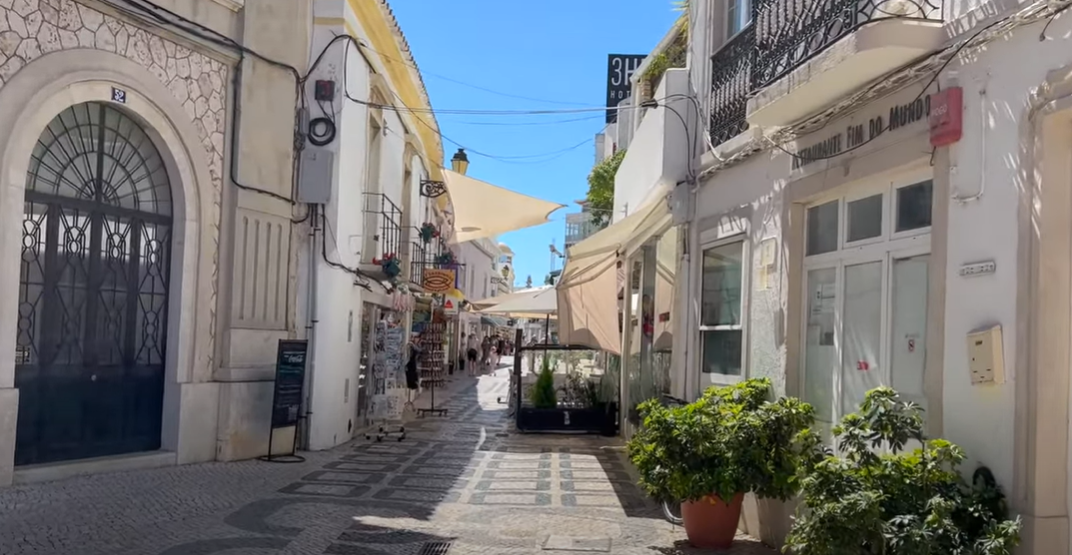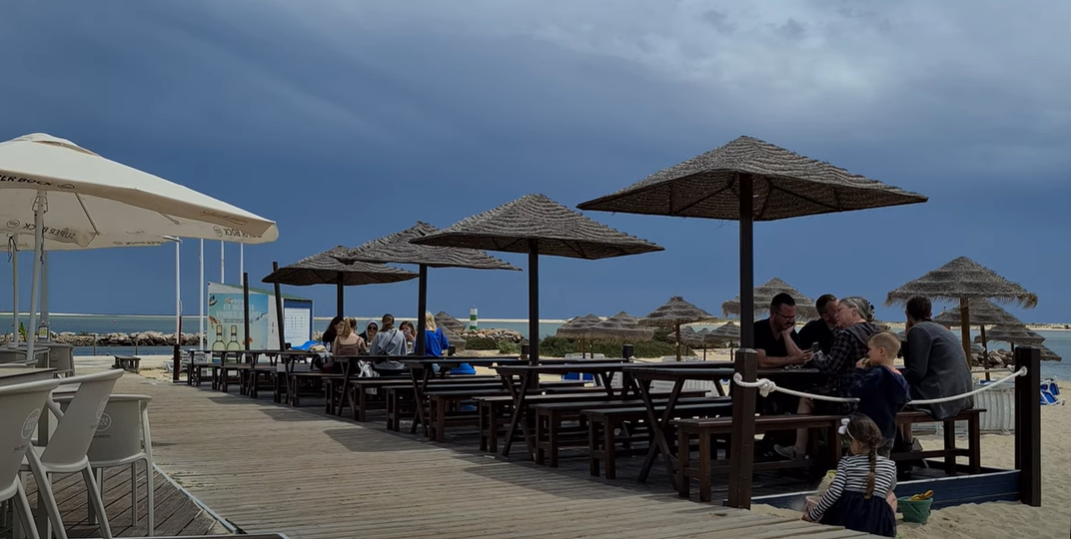Yes, Faro is safe to visit. The city is a popular destination known for its beautiful scenery and rich history. Visitors generally find it secure and welcoming. It's important, however, to exercise common travel safety precautions.

Source: Expedia
I personally visited Faro last summer, while visiting many places in the Algarve region, and had a very positive experience. I felt secure walking around both during the day and at night. The friendly demeanor of the locals and the consistent visibility of police provided additional reassurance. My trip was enjoyable and free from safety concerns, making my stay memorable for all the right reasons. Whether exploring historic sites or enjoying local cuisine, I always felt at ease.
Is Faro Portugal Safe at Night?

Yes, Faro, Portugal is safe at night. In my visits, the streets felt secure and well-lit, especially in popular tourist areas like the marina and downtown. Locals are friendly and helpful, which adds to the sense of security.
During my evening strolls, I found that local police presence is noticeable, ensuring public safety. Restaurants and bars stay open late, and the atmosphere is generally lively and welcoming.
It's important to exercise usual precautions, such as keeping an eye on personal belongings and staying aware of your surroundings. In my experience, navigating Faro at night was as safe as any other city I've visited in western Europe.
Is Faro Safe for Solo Female Travelers?

Yes, Faro is safe for solo female travelers. I've traveled there myself and can confidently say that the city exudes a sense of safety and hospitality that is quite reassuring for anyone traveling alone, especially women.
During my visit, I spent considerable time exploring Faro's charming streets and historical landmarks. Daytime strolls through downtown and the old town felt completely secure, with bustling cafes and friendly locals adding to the welcoming atmosphere. I always made sure to follow basic safety practices like keeping my belongings close and staying alert to my environment, but I never felt uneasy or threatened.
In the evenings, the areas around popular tourist spots like the marina and the main squares remained lively and were well-lit. I enjoyed several nights out dining at local restaurants and felt safe walking back to my accommodation afterwards. The presence of families and other tourists, along with attentive local business owners, helped maintain a safe environment.
Public transportation in Faro is also reliable and felt secure for solo travel. I used buses to visit nearby beaches and parks and found the routes easy to navigate and the other passengers respectful. Taxis and rideshares were readily available, with professional drivers who respected my personal space.
The local police are visible and approachable, adding an extra layer of reassurance. On one occasion, I approached an officer for directions, and they were not only helpful but also offered advice on other places to visit and general safety tips.
From a solo female traveler's perspective, Faro’s accommodations, from hotels to guest houses, prioritize guest security. The staff at my hotel were particularly diligent about guests' safety, with secure entry and 24-hour front desk service.
Reflecting on my trip, I can affirm that Faro is a secure and friendly destination for solo female travelers. The city combines the charm of a small town with the safety features of a well-organized and popular tourist destination, making it an ideal place to visit alone.
Is Faro Safe to Travel Alone?
Yes, Faro is safe to travel alone. From my personal experiences, the city presents a welcoming and secure environment for solo adventurers.
During my numerous visits, I explored various neighborhoods and found that safety is consistently upheld across the city. The streets of the Old Town, which I often strolled through both during the day and at night, always felt safe. The locals were particularly friendly, going out of their way to offer directions or suggest local eateries that weren’t on the usual tourist trail.
Here are a few aspects that underscore Faro's safety for solo travelers:
-
Public Transportation: The city's public transport system is robust and efficient. Buses and trains connect major spots and are generally safe to use at all hours.
-
Well-lit Areas: Key areas, especially those frequented by tourists, are well-lit and often patrolled. This includes the marina and main plazas which host a variety of cafes and shops.
-
Police Presence: There is a noticeable police presence in tourist-heavy areas, providing an added layer of security.
-
Helpful Locals: The local community is accustomed to tourists and generally speaks English well, which is reassuring in managing day-to-day interactions.
-
Stay Informed: Keep up-to-date with local news. Knowing local holidays, strikes, or events can help you avoid unexpected situations.
-
Secure Valuables: As with traveling in any city, it’s wise to secure your valuables and not carry large sums of cash.
-
Local Contacts: Having the contact information for your embassy or local emergency numbers can be very useful in rare cases of emergency.
Each of my visits to Faro has been enjoyable, marked by ease of movement and a general feeling of safety. Engaging with the local culture and people has not only been straightforward but also enriching, making Faro a recommendable destination for solo travelers seeking a blend of culture, history natural beauty, and safety.
Is it Safe to Travel By Public Transport In Faro?
Yes, it is safe to travel by public transport in Faro. Throughout my numerous visits, I've utilized both the buses and trains extensively and can vouch for their reliability and safety. The public transportation network in Faro is comprehensive, well-regulated, and carefully maintained, which instills confidence in both residents and tourists.
-
Buses and trains: Buses and trains are equipped with modern safety features. These include surveillance cameras and emergency communication devices, all of which are regularly checked to ensure they are in working order.
-
Stations and stops are secure: Train stations and bus terminals in Faro are well-lit and continuously monitored through CCTV. Furthermore, they are always staffed during operating hours, which enhances safety and provides assistance to travelers whenever needed.
My personal experiences have been overwhelmingly positive. For instance, late-night travels from downtown Faro to the outskirts were made without incident. The presence of other passengers and regular patrolling by security personnel at major transport hubs made me feel secure at all times.
Moreover, Faro's public transport system is not only safe but also very efficient. The schedules are adhered to meticulously, which minimizes the time spent waiting at stops or stations—often a vulnerability point in many cities.
-
Efficient customer service: On the few occasions when I needed assistance with routes or schedules, the transport staff were exceptionally helpful and informative.
-
Active local community: There's a palpable sense of community among regular commuters, which can be very reassuring for a visitor. People often look out for each other, and it's not uncommon to see locals helping tourists with directions or advice.
Additionally, Faro’s law enforcement takes an active role in maintaining and overseeing public safety across all modes of transport. This proactive approach ensures that any potential security issues are swiftly managed.
In conclusion, Faro offers a public transport system and international airport that is not only functional and dependable but also remarkably safe for all travelers. Whether you're visiting alone or with family, you can rely on the local transport network to move around safely and efficiently.
What are the Crime Rate Statistics in Faro Portugal?
The crime rate statistics in Faro, Portugal, clearly illustrate a city that is remarkably peaceful and secure, especially in terms of violent crime.
In my numerous visits to Faro, I have consistently felt safe, whether exploring the charming old town by day or enjoying the vibrant nightlife. The locals are welcoming, and there is a noticeable police presence and very walkable city that enhances the overall feeling of safety.
Here are some detailed points on Faro's crime statistics:
-
Property crimes such as theft, while present, occur at a much lower rate compared to larger European cities.
-
Violent crimes, including assault, are exceptionally rare. This is corroborated by my own experiences and those of fellow travelers, none of whom have encountered such issues.
-
Incidents of petty crime, such as pickpocketing, are minimal, and tourists can further minimize risks by taking common-sense precautions.
To delve deeper, while Faro is safe overall, it's prudent for visitors to stay aware of their surroundings, especially in less frequented areas or when out late at night. Despite the low crime rates, occasional reports of minor thefts in crowded tourist spots do occur.
Real-time statistics further reinforce Faro's status as a safe city. The latest data from the Portuguese National Statistics Institute shows a continuing trend of declining crime rates over recent years. Furthermore, initiatives by local police to implement community-based policing have strengthened the security of faro beach and environment.
Moreover, safety in Faro can be attributed to several factors:
-
Effective local governance focusing on crime prevention and community safety.
-
Active community engagement in safety initiatives, which promotes a safer environment.
-
The compact nature of Faro, which allows for quick response times and easier monitoring by authorities.
From a personal perspective, during my stays visit faro, I've noticed an efficient response from local authorities to any security concerns, adding to the city's safe reputation. Conversations with locals have also highlighted their pride in Faro's low crime rates and their role in maintaining such standards through community vigilance and cooperation with police.
In summary, based on comprehensive crime rate statistics and my own extensive experiences, Faro stands out as a safe and secure place to visit or reside. Visitors can look forward to an enjoyable and stress-free stay, supported by effective local safety measures and the hospitable nature of its residents.
Is the Water Safe To Drink in the Faro?

Yes, the water in Faro is safe to drink. During my several visits to Faro, I've consistently used tap water for drinking, cooking, and even brushing my teeth, without experiencing any problems.
Faro, like other cities in Portugal, benefits from a well-regulated water supply system that complies with stringent European Union regulations. The local water treatment processes ensure that tap water is free from harmful bacteria and pollutants. Here are some detailed insights on tap water in Faro.
-
Taste and Smell: The tap water in Faro might have a slightly different taste or smell compared to what you might be accustomed to. This is usually due to the minerals in the water, which vary by region. Despite the taste, the water remains potable and safe.
-
Bottled Water: For those who prefer bottled water, it is readily available in supermarkets, cafes, and kiosks around the city. Prices are reasonable, making it an easy option for visitors.
-
Drinking from the Tap: In hotels and guesthouses where I've stayed, I've used tap water extensively. I also noticed that locals drink directly from the tap, which is a good indication of its safety.
-
Eating Out: When dining out, I observed that water served at restaurants is typically tap water unless bottled water is specifically requested. Waitstaff often reassure that the tap water is safe, which aligns with my own experiences.
-
Health Standards: The water quality in Faro is monitored through rigorous testing procedures that check for any chemical and microbiological contaminants. These tests ensure that the water not only meets but often exceeds required health standards.
-
Public Confidence: There is a high level of public confidence in the water quality, which is supported by regular public health advisories and reports on water safety.
-
Hydration: Given the warm climate in Faro, especially during the summer months, staying hydrated is crucial. The safety of the tap water makes it easier to maintain hydration without the extra cost of bottled water.
-
Coffee and Tea: The local water is also suitable for making beverages like coffee and tea. I found that beverages made with tap water tasted as good as those made with bottled water.
Overall, Faro offers its visitors and residents safe and clean tap water. This accessibility not only enhances convenience but also promotes environmental sustainability by reducing reliance on plastic bottles. The assurance of water safety in Faro makes it an even more attractive destination for travelers who value health and convenience.
Tips for Staying Safe in the Faro
Faro, a gem on southern Portugal, is renowned for its historic architecture, welcoming locals, and vibrant seaside atmosphere. Like many popular tourist destinations, it is generally safe, but it's always wise to be cautious to ensure a trouble-free holiday. From my several trips to Faro, I've gathered a list of practical tips based on personal experience and discussions with locals to help you navigate the city and tourist attractions safely and enjoy its many offerings without worry.
Stay Aware in Tourist Areas
In my visits to Faro, I've always felt comfortable strolling through the city's cobbled streets, especially during daylight hours. The city center is bustling with tourists and locals alike, which creates a safe atmosphere. Nevertheless, popular tourist spots can attract pickpockets. I make it a point to keep my belongings secure and stay alert in crowded places.
Keep Valuables Out of Sight
One lesson I learned the hard way during an evening out in Faro was to keep my valuables out of plain sight. After leaving a camera bag slightly open at a café, I noticed someone trying to reach into it. Since then, I ensure that all zips are securely closed and that I carry my bag in front of me when sitting down.
Use Reputable Transportation
The public transport in Faro is reliable and safe. I prefer using official taxis or bus services, especially when returning to my accommodation at night. On my first visit, I downloaded the local taxi app, which proved to be a dependable way to book rides directly from my phone, ensuring that I was using licensed and trustworthy drivers.
Avoid Secluded Areas at Night
Walking back to my hotel late at night once, I took a shortcut through a less-traveled path and felt uneasy due to the poor lighting and lack of people. Since then, I stick to well-lit, busier streets. It's better to take a longer route than compromise on safety.
Secure Your Accommodation
Always ensure that your accommodation in a hotel Faro has is secure. I always double-check the locks on windows and doors before leaving my room or settling in for the night. It's a simple step, but it provides significant peace of mind.
Follow Local Advice
Local residents have been invaluable in advising me on areas to avoid, especially late at night. Chatting with the staff at my hotel or local cafes often provides insights that aren't available in guidebooks. Their advice helps me to experience Faro safely and enjoyably.
Faro, overall, maintains a reputation as a safe destination for visitors, but adhering to these simple tips can enhance your security and ensure a pleasant stay.
FAQs on Is Faro Safe To Visit?
1. Is Faro safe to visit?
Yes, Faro is considered a safe destination for travelers. The city generally experiences low crime rates and maintains a peaceful environment.
2. What are the common safety concerns in Faro?
The main safety concerns in Faro are minor, such as pickpocketing and petty theft, particularly in crowded tourist areas. It is advisable to keep personal belongings secure and remain vigilant.
3. How does Faro compare to other cities in terms of safety?
Portugal Faro is safer than many other cities, both within Portugal and internationally. Its low crime rates make it a favorable option for both short visits and extended stays.
4. Are there any areas in Faro that should be avoided?
There are no specific areas in Faro that are inherently dangerous, but like any city, it's wise to be cautious in less populated or poorly lit areas after dark.
5. What safety tips should visitors keep in mind while in Faro?
Visitors should safeguard their possessions, stay aware of their surroundings, and use common sense to avoid any issues. It's also recommended to have local emergency numbers on hand.
